It’s that time of year when those of us who are depressed by prospect of the end of summer can be comforted by the thought of the approaching winter. It may be irritating when retailers start talking about Christmas earlier every year. But at least we can look forward to the allure of skiing by taking a few wintry books to read as we bask in the late summer sunshine on a Mediterranean beach or even further afield in Florida or the Caribbean. We have picked out seven books for beach reads to whet your appetites for the return of winter.
Storming the Eagle’s Nest: Hitler’s War in the Alps, by Jim Ring
Jim Ring – returning to the mountains he explored with such relish in How the English made the Alps in 2000 – examines the complex role of Switzerland in his latest book. “Switzerland was a fortress built by Nature for herself” he says. “Troops prefer a level playing field…mountains are different, for they swing the balance dramatically in favour of the defender…at the Battle of Morgarten Pass in 1315, 1,400 Swiss peasants ambushed 20,000 Habsburg knights.” In the massacre that followed, there were only 12 Swiss casualties.
So the big question in every Swiss inhabitant’s mind during WW2 was of course would this traditionally neutral country be invaded by Germany? And would her soaring mountain peaks keep invading forces out? If – as seemed almost inevitable – the Axis powers did invade, might not the Italians be sneaking in the back door whilst the Swiss army was trying to repel Hitler’s Wehrmacht in the north?
It never happened of course, but Ring highlights many fascinating aspects of Switzerland’s distinctly uneasy years looking over both shoulders. “As the largest language group in Switzerland was German” he writes, “the Swiss could hardly avoid the rise of Hitler and its implications.”
One problem arose when, by 1944, more and more British and American airmen ended up “landing, crash-landing or parachuting into Switzerland” as Allied air activity increased. Many were interned in a new officers’ camp in Davos. Not an ideal move. As Ring points out: “Davos was immediately a cause of friction. The resort had a long-standing German community, and was the original seat of the German Nazis in Switzerland…there were hundreds of convalescent Reich servicemen in the town.” It led to all kinds of aggressive confrontations, as you’ll discover if you buy this fascinating book.
Storming the Eagle’s Nest by Jim Ring, published this autumn by Faber and Faber.
A Wild Sheep Chase, by Haruki Murakami
‘Leave reality behind and enter Murakami’s fictional universe where nothing is ever as it seems’
Haruki Murakami is a phenomenon – and the most successful Japanese fiction writer in the business. No two of the dozen or so of his novels translated into English are similar, but running through them all is an addictive mind-bending quality – an unexpected trademark for new readers who initially may find his down-to-earth narratives almost prosaic. Yet gradually they will find themselves sucked into a vortex of complex, unsettling mind-games that usually make it impossible to put his books down.
Most of his work is based in Tokyo, but sometimes he escapes to the mountains of Hokkaido (where the 1972 Winter Olympics were held in Sapporo) as in A Wild Sheep Chase (1982) – the last of Murakami’s so-called Trilogy of the Rat series in which the main “characters” are virtually nameless.
Here’s a sample. The protagonist is searching the mountains of Hokkaido for a sheep. Not just any sheep – one with a star on its back that may or may not be running the world. The key is a photograph of the sheep with mountains in the background. But which mountains? And is it a sheep? Or is there something or someone inside it?
“I stopped into a bookstore and bought The Mountains of Hokkaido, and a Hokkaido atlas…I tried comparing the mountains in the Rat’s photograph with every mountain in the book; after ten minutes I was dizzy.
“Seems like we’ve come to a dead end” says the narrator to an un-named girlfriend. “There must be more than a hundred similar mountains in Hokkaido, and the state of sheep raising is a total blank…if we don’t find that sheep we’ll be up to our necks in it…if those guys say they’re going to get us. They’re going to get us. They’re pros. No matter if the Boss dies, the organisation will remain and their network extends everywhere in Japan, like the sewers. They’ll have our necks. Dumb as it sounds, that’s the way it is.”
Intrigued? You will be once you start reading.
A Wild Sheep Chase by Haruki Murakami, published by Vintage Books.
The Snow Tourist, by Charlie English
Charlie English’s first book The Snow Tourist, is a delight. Here is a man who can write eloquently and sometimes profoundly about this extraordinary substance for which the Eskimos allegedly have dozens of words. And of course snow doesn’t just fall in the mountains.
Here’s English on Page 1: “On the way to bed that night I stood by the upstairs window watching the snow fall. Flakes burst briefly into the streetlamp’s sodium light, to be hustled this way and that by the wind before disappearing into the dark. How many crystals lay down there on the whitening patch of road between our houses? A few million, I guessed. Billions in the rest of the street, and that was only a tiny fraction of the number falling from the snow-storm that crossed South-East England. Someone once estimated that a million billion snow crystals were created around the earth every second, in a jumble of shapes and sizes, from simple hexagonal prisms to flat plates and many-fronded stars.”
But of course the Alps and the Rockies are where we always hope and expect to find snow, and English deals with man’s love-hate relationship with mountains. One chapter, Playing with Gravity, describes his battle to overcome his fear of heights – and death – while ski mountaineering. He endures an unsettling mountain-refuge experience and a distinctly unsympathetic guide above the Argentiere glacier. “I spent a dreadful night walking between the stinking toilet block and the snoring masses upstairs” he recalls. Breakfast should have finally put him out of his misery, but he finds no comfort in watching Swiss and Germans swilling coffee and munching cereal. “Where my introduction to skiing as a child had been a happy revelation” he writes, “I was now fearful. I was surrounded by strong, energetic, unafraid people.” The adventure which follows – and the stifled fears in English’s sometimes tortured mind – make for riveting reading.
The Snow Tourist by Charlie English, published by Portobello Books.
The Snow Child, by Eowyn Ivey
‘Wife, let us go into the yard behind and make a little snow girl; and perhaps she will come alive, and be a daughter to us.’
‘Husband,’ says the old woman, ‘there is no knowing what may be. Let us go into the yard and make a little snow girl.’
An enchanting yet haunting story set in 1920s Alaska, The Snow Child is based on Arthur Ransome’s fairytale The Little Daughter of the Snow from Old Peter’s Russian Tales and illustrates the lonely and challenging life in the wilderness, with long dark nights and days of living alongside elk and moose. The writing style is full of imagery, and you are left wondering about the difference between reality and imagination.
The Snow Child by Eowyn Ivey, published by Headline Review.
Miss Smilla’s Feeling for Snow, by Peter Hoeg
One snowy day in Copenhagen, six-year-old Isaiah falls to his death from a city rooftop. The police pronounce it an accident. But Isaiah’s neighbour, Smilla, an expert in the ways of snow and ice, suspects murder. She embarks on a dangerous quest to find the truth, following a path of clues as clear to her as footsteps in the snow.
“The original, witty, intelligent, unconventional character of Smilla Jasperson is well drawn and quite unlike any other character I have ever met in life or fiction… and yet, given her background, she just could be real. Apart from the wonderful Smilla, I was fascinated with the descriptions of Greenland, the people who survive in its hostile climate and its relationship with (a largely unsympathetic) Denmark,” says one Amazon reviewer.
Miss Smilla’s Feeling For Snow by Peter Hoeg, published by Flamingo.
The Magic Mountain, by Thomas Mann
This is the classic novel by the author of Death in Venice. The leading character is Hans Castorp from Hamburg who is described as ‘a perfectly ordinary, if engaging young man’. He sets off to visit his TB-infected cousin at a sanatorium in Davos, but his planned three-week trip turns into a seven-year stay – with romance on the horizon.
“Aptly titled book this; it is indeed mountainous – and not just in that it’s huge. It is the Everest of books: it’s a Herculean task to get try to conquer it but if you do the view is, to follow the metaphor, pretty spectacular,” says one Amazon review.
The Magic Mountain by Thomas Mann, originally published in 1924. Published by Vintage in 1999.
Snow, by Maxence Fermine
Just 100 pages long, you’ll be able to read this in a very short time. It’s a simple but beautiful love story.
“I’ve just spent about an hour reading this book, and HAD to come straight online to tell you all to buy it! It’s absolutely fantastic – I literally couldn’t put it down until, all of a sudden, I had finished it and was left wanting more. Do not even hesitate in purchasing this beautiful book about Haiku – even if you’re new to it all, you can still appreciate the beauty of Haiku and the enchantment of snow,” says an Amazon reviewer.
Snow by Maxence Fermine, originally published in France by Arlea.


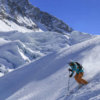
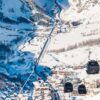
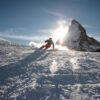
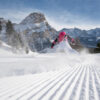
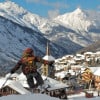
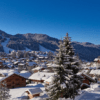

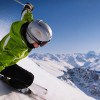
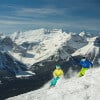


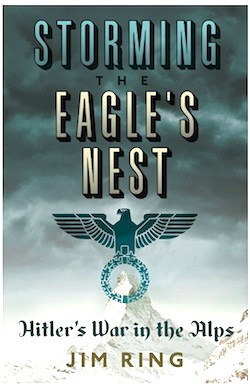

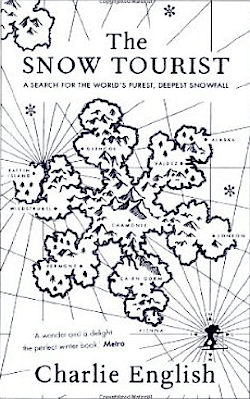
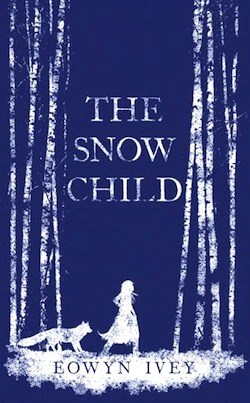
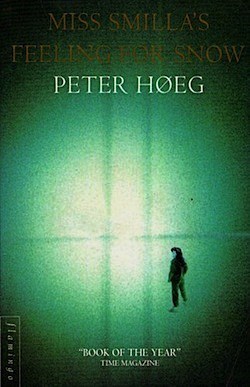
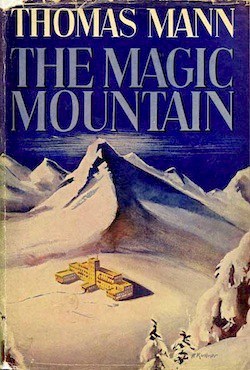

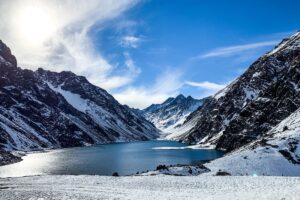

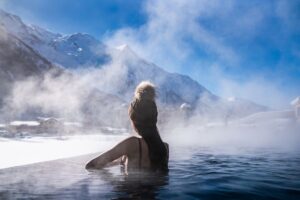
Getting in the mood for winter? https://t.co/qdsTrZd2EZ
Great article – Seven Beach Reads With Snow Themes | Welove2ski https://t.co/Tsi21vJWfI @inghamsholidays
Love this! Seven Beach Reads With Snow Themes | Welove2ski https://t.co/WdPjMb1F6H